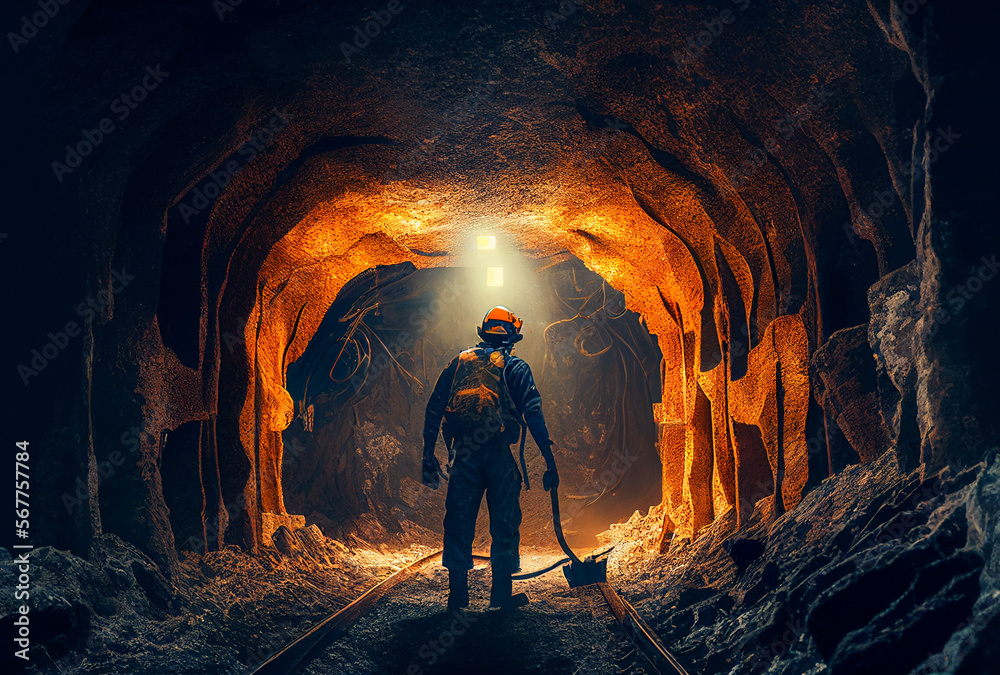
Ever found yourself scrolling through endless job postings, dreaming of a career that truly pays off, but also, you know, doesn’t involve wearing a suit every day? Well, get ready to have your mind blown, because we’re about to dive deep into a world where getting your hands dirty isn’t just a lifestyle choice, it’s a fast track to a six-figure income!
Forget everything you thought you knew about ‘prestigious’ jobs. While many of us chase the elusive ‘clean’ desk job, there’s a whole universe of messy, physically demanding, and often overlooked professions out there that are absolutely raking it in. These aren’t just jobs; they’re opportunities for serious financial freedom, often without the crushing burden of a college degree or battling AI for your next promotion. We’re talking about roles that offer $100K or more through a potent mix of union pay, overtime, hazard bonuses, and specialized skills.
This isn’t just about making a living; it’s about making a *life*—a financially secure one, that is. The jobs on our list might make some people cringe, but for those willing to roll up their sleeves and embrace the grime, the rewards are truly transformative. We’re going to pull back the curtain on 14 incredible ‘dirty’ jobs, revealing why they’re not only essential to our society but also incredibly lucrative. Let’s kick things off with the first seven roles that prove grit absolutely pays off big time!

1. **Underground Miner**
When you picture an underground miner, what comes to mind? Probably not a massive paycheck, right? But hold onto your hard hats, because these unsung heroes are working in conditions that would make most of us run for the hills, and they’re earning serious dough for it. Mining underground is a brutal world defined by intense heat, clouds of dust that cling to everything, deafening noise, and constant danger. It’s a job that truly tests your limits every single day, requiring a rare blend of courage and resilience.
According to BLS OEWS Data from May 2024, salaries for underground miners typically run between $70,000 and $110,000 annually. But here’s where it gets even more interesting: these figures don’t even fully capture the true earning potential. Many of these positions are in remote locations, which often means extended shifts and, crucially, significant hazard pay. This combination can easily push their total income even higher, well past the $100K mark, making the demanding environment surprisingly profitable.
This isn’t just about showing up; it’s about dedication and reliability. Miners who consistently demonstrate their experience and commitment quickly ascend to premium rates, turning what many perceive as a grueling, dirty job into a truly life-changing financial opportunity. The high-risk, high-reward nature of the work means that those who excel are compensated handsomely for their specialized skills and unwavering resolve in challenging conditions.
It stands as one of the most demanding dirty jobs out there, but the money speaks for itself, offering a clear path to substantial wealth for those who can hack it. In fact, some studies show that jobs with hands-on, manual activities, like mining, can actually make people happier than traditional office jobs. So, while you might be covered in dust, you could also be feeling a deep sense of satisfaction and watching your bank account grow!
Read more about: Beyond the Grand Canyon: 14 Underrated National Parks You Need to Visit Right Now

2. **Crab Boat Captain**
If you’ve ever seen those intense documentary series about crab fishing, you know this isn’t a leisure cruise. Becoming a crab boat captain is absolutely not for the faint of heart – it’s a relentless battle against nature on the open sea. Imagine enduring bone-chilling cold, constant drenching, and the terrifying unpredictability of deadly rough seas. These are just the everyday conditions that come with the territory, making it one of the most challenging and messiest jobs you can find afloat.
The work demands incredible physical stamina and mental fortitude. You’ll be hauling incredibly heavy crab pots, navigating icy, slippery decks, and constantly battling freezing spray that coats everything in a layer of ice. These are not just inconveniences; they are constant hazards that make this profession one of the messiest and most physically demanding out there. Every single day is a test of strength, endurance, and sheer willpower, often in isolation from land and without a moment’s rest.
So, why do they do it? The answer, as you might guess, is the incredible earning potential. Captains earn a significant cut of the catch, and during prime seasons, this can effortlessly push their earnings into the six-figure range. The context mentions that even deckhands can pull in anywhere from $15,000 to $50,000 in just a couple of months, meaning the captain’s share is substantially higher and truly life-altering.
Run the right crew in the right waters, and this dirty job quickly transforms into a seriously impressive paycheck, making the dangers well worth the financial reward for many. It’s a career for those who thrive on adrenaline, aren’t afraid of a little (or a lot) of freezing spray, and have the leadership skills to navigate both the ocean and their crew towards a bountiful payday. Talk about turning grit into gold!
Read more about: Beyond the Pavement: Discovering the Best Expedition Vehicles for Your Next Unforgettable Camping Adventure

3. **Landfill Supervisor**
When you think of a supervisor, your mind probably conjures images of an office, perhaps a whiteboard, and definitely no unpleasant odors. But for landfill supervisors, their office is vast, open to the elements, and smells exactly like you’d expect a giant pile of waste to smell. This is a critical management role, overseeing the colossal task of waste flow, coordinating heavy equipment operations, and managing entire crews on a daily basis. It’s a dirty job, yes, but it’s absolutely essential to keeping our communities running smoothly and efficiently.
The pay for a landfill supervisor is far from trashy, typically running between $60,000 and $90,000. And just like many other demanding public service roles, there’s plenty of room to grow those numbers. With the addition of consistent overtime and valuable union benefits, reaching past the $100,000 mark is a very real and attainable goal. It’s a clear example of how hard work, even in a gritty environment, can lead to substantial financial stability and growth, proving that leadership isn’t just confined to clean-cut boardrooms.
Beyond just tolerating the smell, which is definitely a prerequisite, this job rewards strong leadership skills and meticulous organizational abilities. Supervisors at larger facilities or those with multi-site responsibilities can command even higher salaries, reflecting the increased complexity and scope of their duties. They are the maestros orchestrating the massive symphony of waste management, ensuring everything from truck schedules to environmental compliance runs without a hitch.
It’s a dirty job that rewards leadership skills and a high tolerance for the smell, but also for managing complex logistics and ensuring safety in a challenging environment. This role truly showcases how vital effective leadership is, no matter the backdrop, and proves that you can manage a seriously successful career, even from the heart of a landfill!

4. **Oil Rig Worker**
Picture this: you’re hundreds of miles from shore, surrounded by a maze of pipes and machinery, the air thick with the smell of grease and the roar of engines. That’s the daily reality for an oil rig worker. It’s a job that’s inherently greasy, incredibly loud, and keeps you far away from the comforts of home for extended periods. The environment is harsh, demanding constant vigilance and physical endurance, pushing workers to their limits day in and day out, but there’s a compelling reason why people choose this tough path.
Despite the immense challenges, the money in this industry is notoriously hard to beat. Most roughnecks, the entry-level workers on an oil rig, start their careers around $55,000 annually and can quickly hit over $90,000. But the real game-changer comes with hazard pay and the extended, often grueling, rotations they work. These factors frequently push their total compensation well past the $100,000 threshold, offering a financial reward that few other industries can match for similar roles.
For those who can handle the intense grind and are willing to develop specialized expertise, the earning potential skyrockets even further. Moving into skilled roles, such as becoming a driller or even a tool pusher—a supervisory position we’ll explore later—means hitting that six-figure mark even faster. These roles are among the most lucrative dirty jobs around, attracting those with a strong work ethic and a desire for high pay.
For those who can handle the grind, the long shifts, and the isolation, it’s one of the most lucrative dirty jobs around. It’s important to acknowledge that the high danger of oil and gas extraction has a fatality rate seven times the national average, making the substantial pay a direct reflection of the significant risks involved. It’s a career for the brave and the determined, offering a unique lifestyle with a seriously impressive financial payoff.
Read more about: Journey into the Abyss: Uncovering 15 of Earth’s Most Perilous Tourist Destinations for the Adventurous Traveler

5. **Garbage Collector**
Let’s be honest, few jobs are as universally “dirty” in the public imagination as that of a garbage collector. We often take for granted the sight of those trucks rumbling by in the early mornings, magically making our refuse disappear. However, these hardworking individuals are the essential backbone of urban sanitation, working tirelessly in all sorts of unpleasant weather conditions to collect and dispose of residential and commercial waste. It’s a job that’s far from glamorous, but it’s absolutely vital for public health and city functionality.
While the physical toll, exposure to foul odors, heavy lifting, and handling of hazardous materials might deter many, the financial incentives can be surprisingly strong. Base pay typically runs from $45,000 to $80,000. But here’s the kicker: in the right city, especially those with strong union contracts, consistent overtime, and long, demanding routes, becoming a garbage collector can absolutely be a $100,000 job. For instance, sanitation workers in New York City start around $44,821 to $92,093 after 5.5 years, complemented by excellent union benefits and overtime opportunities.
And if you’re thinking about job security, look no further. The U.S. is projected to need approximately 12,300 new garbage collectors over the next decade. This ongoing demand is a powerful force keeping wages high and ensures that this dirty job remains one of the most dependable careers you can land, particularly in many metro areas. It’s a clear-cut case of an essential service that, despite its low social prestige, offers a concrete path to financial stability and impressive income for those willing to embrace the grit.
This role also highlights a societal blind spot, as we often undervalue the real hard work that sustains the country, while glorifying white-collar paths. For workers willing to get their hands dirty, these jobs offer a chance to defy cultural biases and earn a truly respectable income. If a sanitation strike hit New York, the city would grind to a halt, proving just how essential these unsung heroes truly are.
Read more about: The Unraveling Value: 12 Restaurant Chains Where Diners Say the Price Just Isn’t Right Anymore

6. **Crime Scene Cleaner**
Imagine walking into a scene that most people would only ever see on TV, a place where tragedy and trauma have left their indelible mark. This is the reality for a crime scene cleaner, a profession that is undoubtedly tough, both physically and psychologically. These specialists deal with biohazards, the grim aftermath of traumatic events, and often respond to emergency calls, stepping into situations that require immense fortitude and a strong stomach. It’s a job no one *wants* to do, but it’s absolutely necessary, and it pays surprisingly well.
Salaries for crime scene cleaners typically range from $45,000 to $80,000. However, the path to a six-figure income in this field is well-defined. By being available 24/7 for urgent call-outs and acquiring specialized certifications, individuals can significantly push their earnings into that highly desirable six-figure bracket. The inherent unpleasantness and specialized nature of the work mean that demand is consistent, and the compensation reflects the difficult and often disturbing nature of the tasks involved.
Many dedicated crime scene cleaners don’t just stop at individual jobs; they grow into running their own crews, contracting their invaluable services to police departments, property managers, and insurance firms. This entrepreneurial path offers even greater financial autonomy and earning potential, as they become the go-to experts for complex and sensitive cleanups. It’s a niche market, but a vital one, where professionalism and a strong constitution are highly valued.
The fundamental truth is that few people are willing to take on this emotionally and physically challenging work, and that scarcity is precisely why it pays so handsomely. It’s a powerful example of how performing an undesirable but essential service leads to significant financial rewards. These professionals offer peace of mind during some of life’s toughest moments, and their compensation reflects the courage and specialized skills they bring to every cleanup.
Read more about: More Than Just Gunslingers: How 8 Modern Heroes Still Carry the Torch of the Iconic Shane Archetype

7. **Slaughterhouse Worker**
Working in a slaughterhouse is certainly not for the squeamish, and it’s a job that often evokes strong reactions. The environment itself is a sensory assault: loud machinery, bone-chilling cold temperatures required for food preservation, and the inescapable reality of processing livestock for food production. It involves the use of sharp tools, repetitive motions, and constant exposure to blood, animal remains, and other visceral aspects of the process. It’s a demanding role that truly highlights the hidden labor behind our dinner plates.
Despite the gruesome nature, high injury rates from cuts, slips, and repetitive strain, and understandable ethical concerns, this job pays more than many other factory positions. Workers can expect to earn between $40,000 and $75,000 annually, with the BLS reporting a median annual wage of $39,700 for slaughterers and meat packers in 2024. However, just like many other labor-intensive fields, there are significant opportunities to boost that income.
Night shifts, consistent overtime, and moving into more skilled positions, such as becoming a specialized butcher, can push earnings considerably closer to that desirable $100,000 mark. Skilled butchers or supervisors in large plants can earn $50,000–$70,000, with overtime boosting income even further. This shows a clear path for advancement and increased earning potential within the industry.
In larger processing plants, there are often premiums paid for workers who take on safety-critical roles or move into supervisory positions, recognizing the added responsibility and expertise required. While many might consider this a “last resort” job, the truth is that for those willing to stick with it and hone their skills, this dirty job can undeniably bring in serious money. It’s a vital, if unglamorous, career path that provides essential services to society and offers a solid financial return for the demanding nature of the work involved. These are the people literally putting food on our tables, day in and day out!
Alright, so we’ve already peeked behind the curtain at some seriously grubby gigs that are surprisingly lucrative. But guess what? The world of high-paying dirty jobs is even bigger, stranger, and more financially rewarding than you might think! We’re talking about roles that push the boundaries of what most people would consider a ‘nine-to-five,’ but for those with the guts and grit, they offer a direct ticket to financial stability, often without the typical college debt.
It’s time to venture even further, exploring another seven incredible professions that prove that getting your hands dirty can literally make you rich. These aren’t just jobs; they’re essential services, often perilous, that demand specialized skills and a serious tolerance for the unpleasant. Ready to have your mind blown (and maybe your stomach churn a little)? Let’s dive into the next batch of careers where grit truly equals gold, continuing our countdown from where we left off!
Read more about: Kristi Noem: Charting a Conservative Course from South Dakota Governor to Secretary of Homeland Security Amidst National Debates

8. **High-Rise Window Cleaner**
Ever looked up at a glittering skyscraper and wondered who keeps those windows sparkling? It’s not magic, folks. It’s high-rise window cleaners, and their job is as dangerous as it is visually spectacular. This isn’t just about suds and squeegees; it’s about courage, precision, and an absolute lack of fear while dangling hundreds of feet above bustling city streets. Imagine facing gusting winds, extreme temperatures, and the dizzying expanse below, all while ensuring those panoramic views remain crystal clear. It’s definitely not for anyone with a touch of vertigo!
These brave souls are not just cleaning; they’re performing a high-wire act daily. The inherent danger, coupled with the specialized skills required for rigging, safety protocols, and working at such extreme heights, makes this a seriously sought-after skill. That’s why the pay can be incredibly impressive. While base pay typically runs between $50,000 and $85,000 annually, the true earning potential soars with union rates, crucial hazard bonuses, and lucrative contracts, especially in major metropolitan hubs like New York City or Chicago.
It’s not uncommon for experienced high-rise window cleaners to push their annual earnings well past the $100,000 mark. Few people are willing or capable of performing this kind of work, so demand for skilled professionals remains incredibly strong. This scarcity, combined with the undeniable risks involved, means those who master this perilous craft are compensated handsomely. It’s one of those cleaning jobs where the sky isn’t just the limit for the building, but for your bank account too!
Read more about: 12 Roaring Muscle Car Memories That Will Burn Rubber in Your Brain Forever

9. **Sewage Inspector**
Okay, so we’ve covered some messy jobs, but “sewage inspector” probably hits a special kind of “yuck” factor for most people. Let’s be real: this job involves venturing into cramped, dark, and incredibly smelly environments – the literal underworld of our cities – to inspect and maintain the intricate network of sewer systems. It’s a world of raw human waste, hazardous gases, and conditions that would make most people gag. Yet, these unsung heroes are absolutely crucial for public health and urban sanitation.
Their duties go far beyond just “smelling bad.” Sewage inspectors are responsible for identifying blockages, structural damage, and potential hazards within the pipes, often utilizing specialized cameras and equipment. They’re troubleshooting complex underground infrastructure, preventing catastrophic overflows, and ensuring our waste disappears safely and efficiently. It’s a highly technical role that requires a keen eye, a strong stomach, and a deep understanding of municipal systems.
And for all that grit and grime, the pay reflects the unpleasantness and the vital nature of the work. Most sewage inspectors earn between $50,000 and $85,000 annually. But, a combination of union seniority, advanced certifications, and consistent overtime can easily propel their income into the six-figure range. Utilities absolutely value workers who are not only skilled but also willing to tackle the grittiest challenges head-on, offering robust benefits and job security in return.

10. **Coal Miner**
While we previously talked about underground miners (Item 1), coal mining specifically conjures images of historical hardship and demanding conditions. Make no mistake, modern coal mining is still a seriously tough, dark, and dangerous gig, but it’s one that continues to offer substantial paychecks. Imagine descending into the earth, often in confined spaces, surrounded by darkness, and constantly facing the twin threats of dust-filled air and potential collapses. It’s a job that requires unwavering bravery and a deep understanding of subterranean geology.
These workers extract the coal that powers various industries, enduring physically grueling labor in environments far from comfortable. The pervasive coal dust, the constant noise of machinery, and the ever-present hazards make this a job many would shy away from. However, for those who choose this path, the financial rewards can be significant, reflecting the real risks and the essential nature of their work to energy production.
Salaries for coal miners typically range from $55,000 to $85,000 or even higher. But the real boost comes from union seniority, consistent hazard pay (a direct acknowledgment of the dangerous conditions), and working high-demand shifts. These factors frequently push experienced coal miners’ earnings well over the $100,000 mark. In active coal-producing regions, skilled and reliable miners are in high demand and can command top rates.
Read more about: The Enduring Significance of Four: An In-depth Analysis of Its Pervasive Influence Across Disciplines

11. **Commercial Diver**
Now, let’s take a plunge into a job that’s not just dirty, but often takes place in murky, freezing, and downright terrifying environments: commercial diving. This isn’t recreational scuba diving; it’s industrial work performed underwater, often involving heavy-duty construction, inspections, and repairs in places where sunlight fears to tread. Picture yourself welding pipelines hundreds of feet below the ocean’s surface, inspecting oil rig foundations, or working in confined, contaminated waters. Visibility can be zero, currents strong, and the environment utterly unforgiving.
Commercial divers are specialized professionals who undergo rigorous training to operate complex equipment, utilize various tools, and perform skilled tasks in extreme conditions. They face a myriad of hazards, from equipment malfunctions and decompression sickness to entanglement and encounters with marine life in total darkness. The physical demands are immense, and the psychological fortitude required to perform precision work in such alien environments is truly extraordinary.
This high-risk, high-reward profession offers some of the best paychecks in the dirty jobs universe. While entry-level salaries average between $60,000 and $90,000, those with deep-water certifications, experience in hazardous locations, or specializing in offshore work can easily hit (and often exceed) $100,000. Some elite underwater welders with saturation diving specialization can even earn as much as $300,000 per year, proving just how much demand there is for this unique and dangerous skill set.
Read more about: DOROTHY’s Unyielding Spirit: Charting the American Rock Band’s Journey, Evolution, and Enduring Impact on Modern Music

12. **Tool Pusher**
Okay, we’ve talked about oil rig workers, the “roughnecks” who are the backbone of offshore operations. But then there’s the “tool pusher” – the top supervisory role on an oil rig. This individual manages entire drilling crews, keeps complex operations running smoothly, and ensures strict safety protocols are followed, all while being miles from civilization and often facing extreme conditions. It’s leadership in one of the dirtiest, most dangerous industries on the planet.
A tool pusher isn’t just a manager; they’re a master strategist, a problem-solver, and a critical decision-maker responsible for the efficiency and safety of a multi-million dollar operation. They coordinate equipment, personnel, and logistics, often in high-pressure, high-stakes situations where a single mistake could have catastrophic consequences. This role requires years of hands-on experience as a roughneck or driller, an intimate understanding of every aspect of drilling operations, and exceptional leadership skills.
Given the immense responsibility and the years of grueling experience required, the pay for a tool pusher is truly outstanding. Salaries typically start around $80,000 and frequently soar past $110,000, especially with hazard premiums, performance bonuses, and the long, demanding shifts that are standard in the industry. It’s the ultimate high-paying leadership track within the dirty oil and gas sector, rewarding those who have proven their mettle.
Read more about: Seriously, What Happened? 14 Beloved American Foods That Have Vanished from Our Tables

13. **Farmhand**
When you think of a farmhand, you might picture rolling green fields and idyllic country life. But let’s get real: working on large-scale livestock operations is profoundly dirty, incredibly physically demanding, and involves long, grueling days surrounded by animals, feed, and, well, manure. This isn’t a quaint hobby farm; it’s an industrial environment where you’re constantly lifting, hauling, cleaning, and caring for hundreds, sometimes thousands, of animals. It’s the very definition of getting your hands dirty, and then some.
Farmhands are the unsung backbone of our food supply chain, performing vital tasks from feeding and watering livestock to cleaning pens, assisting with birthing, and maintaining equipment. The work is relentless, often starting before dawn and ending long after dusk, regardless of weather conditions. It requires immense physical strength, stamina, a strong work ethic, and a genuine tolerance for the sights, sounds, and smells that come with large-scale animal agriculture.
While the base pay for farmhands typically ranges from $45,000 to $80,000, there’s significant potential to push those earnings well past the $100,000 mark. This happens through consistent overtime, especially during busy seasons, acquiring specialized skills (like operating complex machinery or veterinary assistance), and moving into supervisory roles on larger industrial farms or feedlots. Dependable workers who can handle the demanding environment are highly valued.
Read more about: The Cinematic Time Capsule: 15 Overlooked 80s and 90s Masterpieces You Absolutely Need to See
14. **Roofer**
Let’s talk about a construction job that’s as physically brutal as it is essential: roofing. Imagine spending your entire workday high above the ground, often under the scorching sun or battling inclement weather, hauling heavy shingles, lumber, and equipment. You’re constantly exposed to dirt, dust, grime, and the unpredictable elements, all while ensuring a critical component of every building is sound and watertight. It’s a physically punishing role that demands strength, endurance, and a serious head for heights.
Roofers aren’t just slapping shingles on; they’re skilled tradespeople who understand structural integrity, material science, and safety protocols. They face constant risks from falls, heatstroke, and heavy equipment, making it one of the more dangerous construction jobs. Despite these challenges, their work is always in demand, whether it’s for new construction, routine maintenance, or crucial repairs after severe storms.
The pay for roofers typically ranges from $45,000 to $85,000 annually. But, for those willing to chase the work, there are ample opportunities to exceed the $100,000 mark. This includes specializing in storm recovery work (which often brings emergency hazard pay and extensive overtime), taking on challenging high-rise projects, or simply putting in the long hours during busy seasons. The Bureau of Labor Statistics projects a solid 5.8% growth for roofers over the next decade, with thousands of job openings, signaling consistent demand.
So there you have it, folks! From the dizzying heights of skyscrapers to the murky depths of sewer systems, and from the relentless seas to the vast plains of industrial farms, we’ve explored 14 incredible ‘dirty’ jobs that prove getting your hands messy can be the quickest, most direct route to a six-figure income. These are not the glamorous careers featured in magazines or talked about at fancy dinner parties, but they are the bedrock of our society, offering essential services and, crucially, a path to real financial freedom.
It’s time to challenge those old-school notions that only clean desk jobs lead to success. The truth is, many of these roles offer a blend of union contracts, hazard bonuses, abundant overtime, and specialized skills that can easily outperform many traditional white-collar professions, often without the burden of crippling college debt. For those willing to roll up their sleeves, embrace the grit, and defy societal expectations, the payoff isn’t just a big fat paycheck; it’s a profound sense of purpose, job security, and the undeniable satisfaction that comes from performing work that truly matters.
Read more about: Gogglebox Star George Gilbey: Police Close Investigation into Tragic Death, HSE Continues Inquiry into Workplace Accident
So next time you’re dreaming of a better financial future, remember these unsung heroes. The path to financial freedom isn’t always spotless, but as we’ve seen, it can certainly be worth every single dirty, hard-earned penny. Don’t be afraid to get a little grimy – your bank account might just thank you for it!




